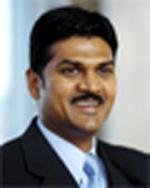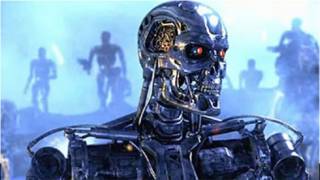SERCO - The Biggest Company you've Never Heard of
Source: guardian.co.uk
Serco Group plc is a business services company based in Hook, North Hampshire in the United Kingdom. Serco was founded in 1929 as a United Kingdom division of the Radio Corporation of America and initially provided services to the cinema industry. It changed its name to Serco in 1987 and has been a London Stock Exchange listed company since 1988.
Happy, touchy-feely and driven by God
Have you recently travelled on a train in northern England? Or on London's Docklands Light Railway? Or perhaps been caught by a speed camera?
If the answer to any of these questions was yes - or you have spent any time in custody or the armed forces -chances are you have dealt with the support services company Serco. With almost 48,000 people helping to service 600 largely public-sector contracts around the world, Serco is probably the biggest company you've never heard of.
 Christopher Rajendran Hyman |
The City is usually sceptical about such low profit margins, but Hyman, a 42-year-old who combines the zeal of Cliff Richard with the determination of Seb Coe in his racing days, manages to make such margins seem like a good thing while at the same time buying firms that improve matters.
"One of the things we find around 37 countries, is what people find acceptable. What sort of money should people make out of the public sector," he explains in the company's headquarters close to the river Thames in Richmond.
An Indian Pentecostal Christian from South Africa, Hyman is an unusual chief executive in many ways, not least his enthusiasm for what he calls the values of doing business. He gave a speech on the subject at the Business in the Community conference last year which made seasoned executives sit up and take notice, such was his enthusiasm for putting people first so that the rest - profits, investors, power - would follow.
Upright
"I am very passionate about our values and building this company not to make a profit," he says. "If profit is an immediate by-product, then that's wonderful ... If you can make it have an impact on society, people's lives and make it fun, crumbs, then we don't have to worry about making this profit or that. It happens naturally."
Slim, upright and gleaming with good health, he doesn't quite bang the table when he speaks but you sense that he might do at any moment. With an incredibly direct gaze and fierce handshake, he describes himself as "evangelical" about getting people to feel that their work really matters, whether it's keeping records for schools in Walsall or maintaining Greenwich mean time signals.
"You can choose to leave a mark or you can choose not to. I tell people here: if you can make a difference in whatever you do, bid it. Don't give me a proposal that makes a shed-load of money - will it be a better place when you leave than when you arrived?" He insists Serco was founded with these values; he has just capitalised on his inheritance and stressed honesty as the best policy when dealing with all management issues. He doesn't pretend to agree just to make a subordinate feel better, for example.
Unlike most chief executives, Hyman is perfectly happy to link his business ethos with his personal beliefs. "I've taken it to a more personal level because I absolutely grew up with these values."
He was brought up, the second of four children, in a deeply religious household in apartheid Durban. "My faith is very strong. My whole life, I believe, is driven by God. It's well known that if Einstein had a son I would be furthest away from that relative. I'm no genius," - at this point, he smiles a dazzling smile - "what I am successful for is listening to God." He donates a biblical tithe - or 10% of his annual income (£569,018 last year) - to his local Pentecostal church in Surrey and fasts every Tuesday, as he has done every week of his life.
Asked if this is difficult in Britain, where spending every Sunday in the pub is often more socially acceptable than at church, he admits it can be. "Yes, people laugh. People ask if it's some weird cult thing. Why don't I swear? Because I refuse to. Why don't I drink? Because I was taught not to. Why haven't I ever tried any of those things? It was the way I was brought up."
Hyman has instilled some of these values at Serco, where staff are advised not to hold an official evening function unless partners and spouses are invited. Hyman's version of "having a good time and celebrating our success" means sharing an orange juice at lunchtime.
Conscious of my own department's late-night leaving party for the boss the night before our meeting, I start to squirm slightly in my chair but fortunately Hyman does not notice.
"I'm always sober so when the guys tell me the same joke for the tenth time at 11.30pm, I still laugh. But you tend to see silly behaviour from the irresponsible people, the weaker part of society, starting to misbehave ... I don't want to be the sponsor of that." According to Serco's own survey, 80% of the former public-sector workers feel happier in the private-sector firm. Perhaps more tellingly, Serco itself has been named Britain's most admired support services company in an annual Management Today survey for two years running.
Hyman, who has two young children and a South African wife, was described as "driven" and "relentlessly affable" by analysts. A man who constantly uses slightly old-fashioned idioms such as "head honcho", "nutter" and "airy fairy" describes himself as a "happy chap". "When I wake up in the morning I think good thoughts; 99% of people are good people."
The enthusiasm has a sub-stratum of relentless competitiveness. Towards the end of the interview, he admits: "I am never good enough. I am a depressive. It all becomes very personal."
A great sprinter when younger, he considered a career as an athlete when he ran 100 metres in 10.8 seconds. He went on a special diet and made himself vomit, but then realised that he would never be good enough to win gold and stopped. He is a passionate formula 3 motor racer but cried when he came fourth in his first ever race. "I felt such a failure - I was embarrassed and incredibly emotional."
Proud
"I'm probably one of the most competitive people around," he admits. "I can't play tennis with my wife without serving my normal serve. She quite often calls me a 4-year-old child and storms off." When his wife asks if just once he would let his seven-year-old son beat him at go-karting, he said he would be teaching him that "he's better than an adult". "It's terrible," he admits.
He is hugely proud of his father, the son of a waiter who runs seven businesses in South Africa. His father started by "selling used cars, where it's not well known for someone to take an ethical stand," and fired people who turned back clocks and used dodgy parts.
Hyman became one of a handful of non-whites to study at his university. He then worked for Arthur Andersen in South Africa until he won an 18-month exchange with Ernst & Young, which brought him to Britain. After four months, the accountancy firm gave the hard-working young man a permanent job. His switch to Serco in 1994 felt like a coming home and he tells a story of the boss's wife helping out when his own wife had a disabling migraine.
Serco's share price has performed solidly rather than spectacularly and this may be because of its emphasis on such touchy-feely sentiments. Hyman admits: "This may not go down very well but I put people first, then customers, then shareholders. If [our] people are happy, everyone else is happy."
The company flouts corporate governance norms since the former chief executive, Kevin Beeston, is now executive chairman. He deals with governmental relations while Hyman focuses on customers. "We've never structured it to fit the mould. We do what's right for the business and over time the roles have evolved."
Hyman's life changed when he found himself in the World Trade Centre on 9/11. He does not want much of this "traumatic" experience to appear in print but admits it made him, a workaholic who sleeps for only a few hours a night, want to spend more time with his family. "I decided to do things that previously I'd thought a bit naff, like taking my wife's birthday off to go shopping. I mean, how naff is that?"
It is hard to imagine him letting up much. On his almost barren desk is a diary which he analyses every month with the help of a secretary to make sure it fits his needs. "I can be anal about this stuff. I want to spend about 30% of my time on historic stuff and 70% on pro-active stuff, getting new business, that sort of stuff."
His secretary points to her own desk, buried in paperwork, and says. "He works me like a slave." Then she laughs and everyone seems quite happy again.
Hyman on Hyman
What are your best and worst personality traits?
I make my mind up pretty quickly, although my wife says this makes me too judgmental. And I am extremely competitive - I can't even let my seven-year-old win at go-karting.
What was your worst business decision?
Using all my savings to buy a takeaway place on a beach in South Africa in my last year at college.
Who inspires you?
My father, a truly self-made man, and Richard White, former chairman of Serco.
How do you relax?
Motor racing and holidays. Favourite places are Antigua and Switzerland for skiing.
What books do you enjoy reading?
Technical motor-racing stuff and biographies, anything from Jack Welch [former General Electric chief executive] to Mandela to Michael Schumacher.
Source: guardian.co.uk






















